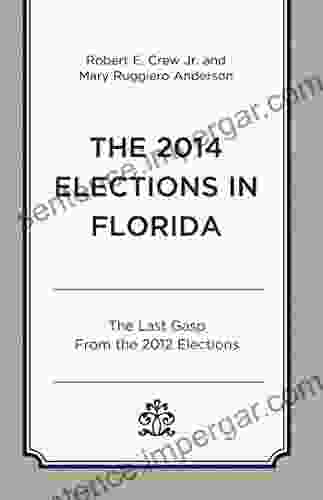Ten Theses for an Aesthetics of Politics: Forerunners

4 out of 5
| Language | : | English |
| File size | : | 872 KB |
| Text-to-Speech | : | Enabled |
| Screen Reader | : | Supported |
| Enhanced typesetting | : | Enabled |
| Word Wise | : | Enabled |
| Print length | : | 68 pages |
The term "aesthetics" is often used to refer to the study of beauty, but it can also be used in a broader sense to refer to the study of sensory experience. In this sense, aesthetics is concerned with how we perceive the world around us and how our perceptions shape our thoughts and feelings.
The relationship between aesthetics and politics has been a subject of debate for centuries. Some thinkers have argued that aesthetics is a purely subjective matter, while others have argued that it is a powerful force that can shape our political beliefs and actions.
In his book _Ten Theses for an Aesthetics of Politics: Forerunners_, Jacques Rancière argues that aesthetics is not simply a matter of personal taste, but rather a social and political phenomenon. He argues that the way we perceive the world around us is shaped by our social and political experiences. In turn, our perceptions of the world can influence our political beliefs and actions.
Rancière's book is a groundbreaking work that explores the relationship between aesthetics and politics in new and innovative ways. It is essential reading for anyone interested in the intersection of art and politics.
The Ten Theses
Rancière's book is divided into ten theses, each of which explores a different aspect of the relationship between aesthetics and politics.
The first thesis states that aesthetics is not a purely subjective matter. Rather, it is a social and political phenomenon. The way we perceive the world around us is shaped by our social and political experiences.
The second thesis states that aesthetics is not simply a matter of taste. Rather, it is a matter of judgment. When we make judgments about the beauty or ugliness of something, we are not simply expressing our personal preferences. We are also making claims about the world around us.
The third thesis states that aesthetics is not a neutral force. Rather, it is a powerful force that can shape our political beliefs and actions. The way we perceive the world can influence our beliefs about what is possible and desirable.
The fourth thesis states that aesthetics is not a private matter. Rather, it is a public matter. The way we perceive the world is influenced by the way others perceive it.
The fifth thesis states that aesthetics is not a static force. Rather, it is a dynamic force that is constantly changing. The way we perceive the world is constantly changing, and so too is our understanding of aesthetics.
The sixth thesis states that aesthetics is not a unified force. Rather, it is a multifaceted force that can take many different forms. There is no single definition of aesthetics.
The seventh thesis states that aesthetics is not a homogeneous force. Rather, it is a heterogeneous force that can be found in a variety of different places. Aesthetics can be found in art, music, literature, film, and even in everyday life.
The eighth thesis states that aesthetics is not a transcendent force. Rather, it is an immanent force that is always present in the world around us. Aesthetics is not something that exists outside of the world. It is something that is always present, even if we are not always aware of it.
The ninth thesis states that aesthetics is not a passive force. Rather, it is an active force that can shape our thoughts and feelings. Aesthetics can inspire us, move us, and even change our lives.
The tenth thesis states that aesthetics is not a revolutionary force. Rather, it is a reformist force that can help us to improve the world around us. Aesthetics can help us to see the world in new ways and to imagine a better future.
Jacques Rancière's _Ten Theses for an Aesthetics of Politics: Forerunners_ is a groundbreaking work that explores the relationship between aesthetics and politics in new and innovative ways. It is essential reading for anyone interested in the intersection of art and politics.
Rancière's book shows us that aesthetics is not simply a matter of personal taste. Rather, it is a powerful force that can shape our political beliefs and actions. The way we perceive the world can influence our beliefs about what is possible and desirable.
Rancière's book also shows us that aesthetics is not a neutral force. Rather, it is a political force that can be used to promote or challenge the status quo. Aesthetics can be used to inspire us, move us, and even change our lives.
Rancière's book is a timely reminder that aesthetics is a powerful force that can be used for good or for evil. It is up to us to decide how we will use it.
4 out of 5
| Language | : | English |
| File size | : | 872 KB |
| Text-to-Speech | : | Enabled |
| Screen Reader | : | Supported |
| Enhanced typesetting | : | Enabled |
| Word Wise | : | Enabled |
| Print length | : | 68 pages |
Do you want to contribute by writing guest posts on this blog?
Please contact us and send us a resume of previous articles that you have written.
 Book
Book Novel
Novel Page
Page Chapter
Chapter Text
Text Story
Story Genre
Genre Reader
Reader Library
Library Paperback
Paperback E-book
E-book Magazine
Magazine Newspaper
Newspaper Paragraph
Paragraph Sentence
Sentence Bookmark
Bookmark Shelf
Shelf Glossary
Glossary Bibliography
Bibliography Foreword
Foreword Preface
Preface Synopsis
Synopsis Annotation
Annotation Footnote
Footnote Manuscript
Manuscript Scroll
Scroll Codex
Codex Tome
Tome Bestseller
Bestseller Classics
Classics Library card
Library card Narrative
Narrative Biography
Biography Autobiography
Autobiography Memoir
Memoir Reference
Reference Encyclopedia
Encyclopedia Jeff Foxworthy
Jeff Foxworthy Jason Mittell
Jason Mittell Jasbir Singh
Jasbir Singh Jay W Carender
Jay W Carender James Mcconvill
James Mcconvill James S Corum
James S Corum Jayne Flaagan
Jayne Flaagan Jeannette E South Paul
Jeannette E South Paul Jeff Bennington
Jeff Bennington James Kotsiras
James Kotsiras Jane Wilcock
Jane Wilcock James J Licari
James J Licari Janet Bond Brill
Janet Bond Brill Janice Irwin
Janice Irwin James D Robenalt
James D Robenalt Jean Baur
Jean Baur Janet Fizz Curtis
Janet Fizz Curtis James Ussher
James Ussher James Hasik
James Hasik Janet Macleod Trotter
Janet Macleod Trotter
Light bulbAdvertise smarter! Our strategic ad space ensures maximum exposure. Reserve your spot today!

 Anthony BurgessDiscover the Intriguing Political Landscape: The 2024 Elections in Florida
Anthony BurgessDiscover the Intriguing Political Landscape: The 2024 Elections in Florida Peter CarterFollow ·13.4k
Peter CarterFollow ·13.4k Robin PowellFollow ·17k
Robin PowellFollow ·17k Brenton CoxFollow ·13.3k
Brenton CoxFollow ·13.3k David PetersonFollow ·17.8k
David PetersonFollow ·17.8k Ruben CoxFollow ·10.5k
Ruben CoxFollow ·10.5k W. Somerset MaughamFollow ·5.9k
W. Somerset MaughamFollow ·5.9k Anthony BurgessFollow ·19.5k
Anthony BurgessFollow ·19.5k Arthur Conan DoyleFollow ·8.6k
Arthur Conan DoyleFollow ·8.6k

 Jacob Foster
Jacob FosterPrinciples and Persons: The Legacy of Derek Parfit
Derek Parfit's 1984 book,...

 Leo Mitchell
Leo MitchellPartners For Life: Raise Support For Your Missionary Work...
Are you a missionary or ministry leader...

 Blake Kennedy
Blake KennedyOn Desperate Ground: A Gripping Account of World War II's...
Hampton Sides' "On...

 Duane Kelly
Duane KellyCriminal Minds Sociopaths Serial Killers And Other...
In the realm of criminology,...

 Craig Blair
Craig BlairHome Repair: The Ultimate Guide to Fix, Maintain, and...
Welcome to the...

 Elmer Powell
Elmer PowellThe Organic Grower Guide to Mycorrhizae Science for...
Unlock the Secrets of Soil...
4 out of 5
| Language | : | English |
| File size | : | 872 KB |
| Text-to-Speech | : | Enabled |
| Screen Reader | : | Supported |
| Enhanced typesetting | : | Enabled |
| Word Wise | : | Enabled |
| Print length | : | 68 pages |










